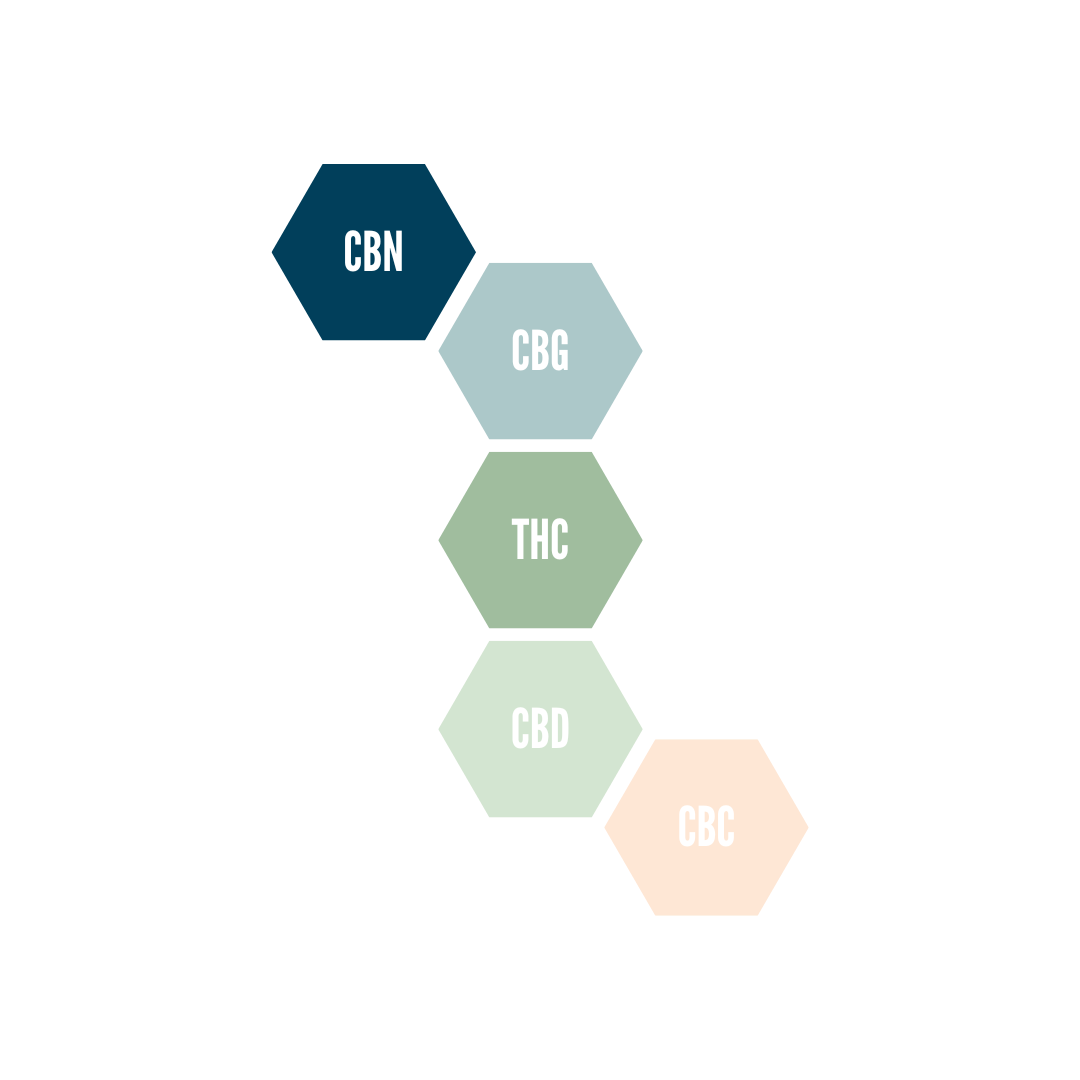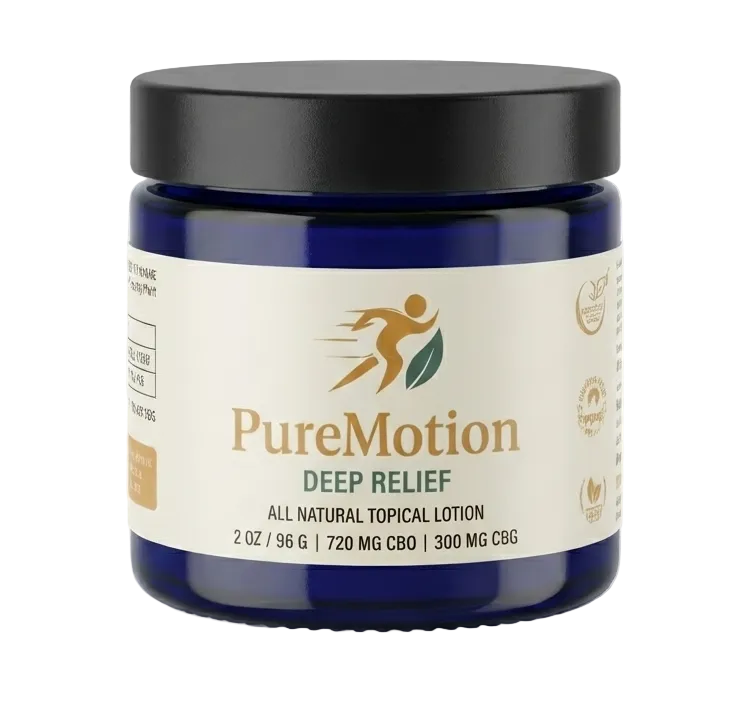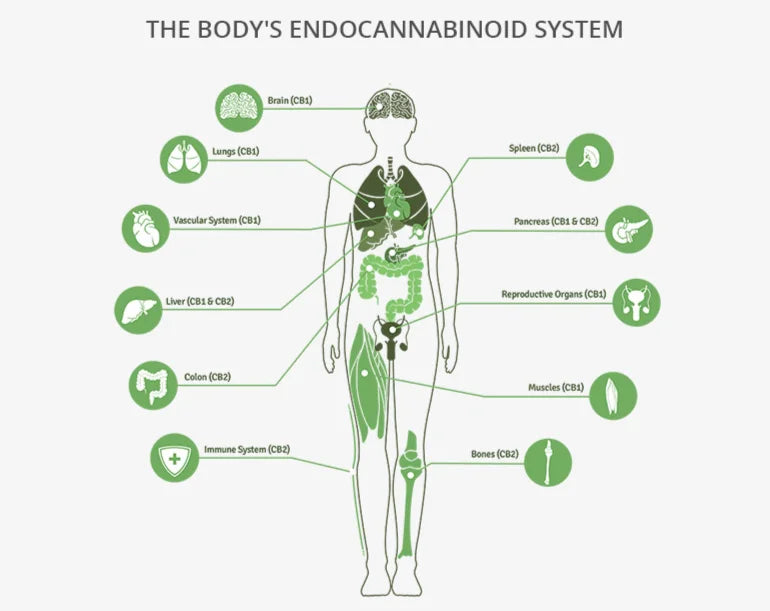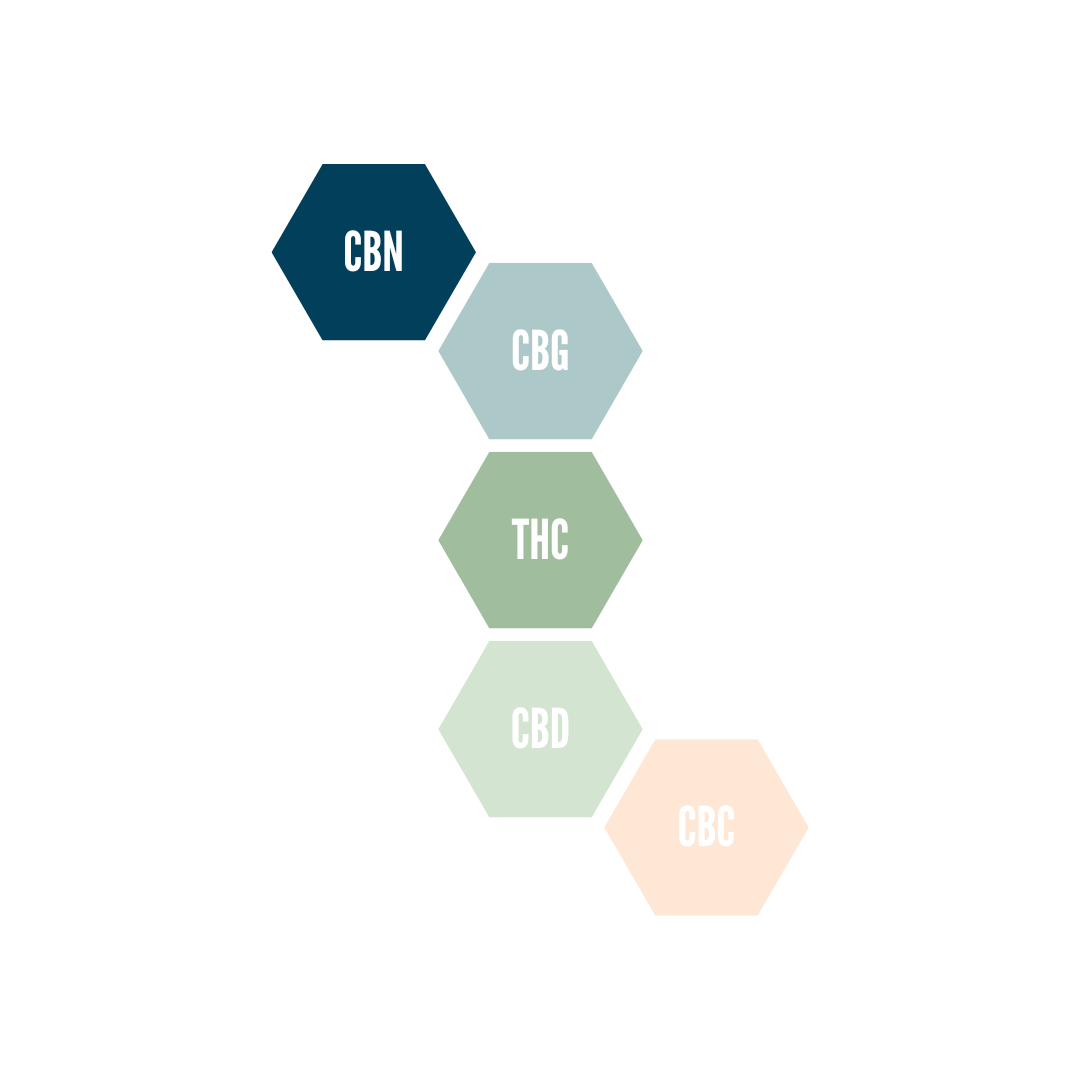
What are Cannabinoids and the Entourage Effect
Understanding Cannabinoids and Their Effects
Cannabinoids are a fascinating class of compounds that interact with the endocannabinoid system (ECS) in our bodies. They have gained significant attention for their potential therapeutic benefits. In this article, we'll explore what cannabinoids are, delve into the entourage effect,
and discuss some of the most well-known cannabinoids, including THC, CBD, CBN, CBG, and CBC.
What Are Cannabinoids?
Cannabinoids are naturally occurring compounds found in the Cannabis plant. These
compounds interact with cannabinoid receptors in the human body, particularly within the ECS, to produce various effects. There are over 100 different cannabinoids, each with unique properties and potential benefits.
What Is the Entourage Effect?
The entourage effect refers to the synergistic interaction between cannabinoids,terpenes, and other compounds found in the cannabis plant.This theory suggests that the therapeutic effects of the plant are greater when all its components work together rather than in isolation. For example, a full-spectrum CBD product, which includes various cannabinoids and terpenes, may offer more significant benefits than a product containing CBD alone.
THC (Tetrahydrocannabinol)
THC is the most well-known cannabinoid due to its psychoactive effects, which create the sensation of being "high." Beyond its recreational use,THC has several medicinal properties:
- Pain Relief: THC is effective in alleviating chronic pain.
- Appetite Stimulation: It can help increase appetite, which is beneficial for individuals with conditions like HIV/AIDS or cancer.
- Nausea and Vomiting: THC is used to reduce nausea and vomiting, particularly in chemotherapy patients.
CBD (Cannabidiol)
CBD is another major cannabinoid, renowned for its non-psychoactive properties. It is widely used for its therapeutic benefits:
- Anxiety and Depression: CBD has been shown to help reduce symptoms of anxiety and depression.
- Anti-Inflammatory: It has potent anti-inflammatory properties, making it useful for conditions like arthritis.
- Epilepsy: CBD is effective in reducing the frequency of seizures in certain forms of epilepsy.
CBN (Cannabinol)
CBN is a mildly psychoactive cannabinoid that forms as THC ages and breaks down. It offers several potential benefits:
- Sleep Aid: CBN is known for its sedative properties and may help improve sleep quality.
- Pain Relief: It has been found to provide pain relief, especially when combined with other cannabinoids.
- Antibacterial: CBN has shown promise in fighting bacterial infections.
CBG (Cannabigerol)
CBG is a non-psychoactive cannabinoid often referred to as the "mother" of all cannabinoids because it is the precursor from which other
cannabinoids are synthesized. Key benefits of CBG include:
- Anti-Inflammatory: CBG is effective in reducing inflammation, particularly in inflammatory bowel disease.
- Neuroprotective: It may have neuroprotective properties, potentially aiding in the treatment of neurodegenerative diseases.
- Antibacterial: CBG has demonstrated strong antibacterial properties.
CBC (Cannabichromene)
CBC is another non-psychoactive cannabinoid that has garnered interest for its potential therapeutic benefits:
- Anti-Inflammatory and Pain Relief: CBC works in conjunction with other cannabinoids to reduce inflammation and pain.
- Neurogenesis: It may help in the growth of new brain cells, suggesting potential benefits for neurodegenerative conditions.
- Acne Treatment: CBC has shown promise in treating acne due to its anti-inflammatory and antibacterial properties.






















